
Growth & partnerships
‘Blue Zones’ initiative takes aim at Alzheimer’s

UC Davis Health will play a key role in a new pilot program aimed at reducing Alzheimer’s disease in the Sacramento region and throughout California. The new Blue Zones Activate initiative, which aims to make the region dementia-friendly, is launching in Sacramento County, and UC Davis Health will be a partner.
It’s of the earliest endeavors resulting from the Governor’s Task Force on Alzheimer’s Prevention, Preparedness and the Path Forward, launched in 2019 by Gov. Gavin Newsom and chaired by former first lady of California Maria Shriver. Other members included David Lubarsky, M.D., M.B.A., F.A.S.A., UC Davis Health CEO and vice chancellor of human health sciences, and UC Davis Health neurology researcher Oanh Meyer, Ph.D., M.A.S., who studies cognitive and mental health disparities in minorities and older adults.
Lubarsky and Meyer contributed to task force discussions, work groups and the proposals ultimately unveiled. In 2020, the task force delivered 10 recommendations — including one focused on Blue Zones — to better prepare California for an aging population and to prevent an expected surge in Alzheimer’s cases. A recent study from the Alzheimer’s Association estimated that 720,000 people in California live with Alzheimer’s — more than any other state.
‘Blue Zones’: healthy and happy
California selected Sacramento County to roll out the new Blue Zones pilot program with the intention that it will serve as a blueprint for the state to replicate and adapt for other communities. It is the first community in California to use the Blue Zones model on Alzheimer’s.
The Blue Zones/county partnership will focus on equity, acknowledging the region is home to some of the state’s most diverse populations. Blue Zones and Sacramento County are working on an in-depth assessment to identify zip codes of greatest need. Black and Latino older adults are at increased risk for Alzheimer’s because of disparities in health care; according to an Alzheimer’s Association report, 19 percent of Black and 14 percent of Latino adults over 65 have the disorder, compared with 10 percent of older white adults.
The company Blue Zones will implement the project. The name refers to “blue zone” regions around the world where people live extraordinarily long, healthy and happy lives. The focus is on this single largest determinant of health — where people live. Instead of focusing on only changing individual behavior, Blue Zones aims to help communities make permanent changes to systems and surroundings so it’s easier to eat wisely, move naturally, and connect with others.
UC Davis is also one of five U.S. sites implementing the Alzheimer’s Association funded “U.S. POINTER study” of lifestyle interventions based on diet, exercise, and more. The UC Davis Alzheimer’s Disease Center is one of 27 nationwide designated by the NIH’s National Institute on Aging.
Partnership to boost access to gene and cell therapies in California
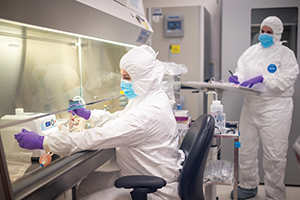 UC Davis and Orgenesis Inc. announced an agreement this summer to roll out Orgenesis Mobile Processing Units and Labs™ (OMPULs™) at multiple medical and academic institutions within the University of California. These OMPULs provide onsite development and manufacturing of cell and gene therapies, help reduce development costs, and increase access to therapies.
UC Davis and Orgenesis Inc. announced an agreement this summer to roll out Orgenesis Mobile Processing Units and Labs™ (OMPULs™) at multiple medical and academic institutions within the University of California. These OMPULs provide onsite development and manufacturing of cell and gene therapies, help reduce development costs, and increase access to therapies.
“We are very excited to move forward with this collaboration with Orgenesis,” said Jan Nolta, Ph.D., director of the Stem Cell Program and the UC Davis Gene Therapy Center in the Institute for Regenerative Cures at UC Davis Health. “The OMPULs will allow wider access to promising cell and gene therapies for patients in different regions of California, improving accessibility and reducing health care disparities.”
The collaboration is the initial step in bringing affordable therapies to patients in California. It sets out a staged approach to install and operate OMPULs using the point-of-care (POCare) Service Platform to produce onsite cell and gene therapies for clinical trials and therapeutics for hospitals. UC Davis Health joined the Orgenesis POCare Network in 2020, and has been utilizing the platform to develop and supply cell and gene products and therapies.
Access to cell and gene therapy through onsite manufacturing
Over the last three decades, the field of cell and gene therapies has transformed, with expanding applications each year. For example, Chimeric antigen receptor T (CAR T) cells are applied as first-line therapies to cure hematologic malignancies, giving thousands of patients hope that their immune systems could be trained to successfully combat their lymphomas or leukemias for the rest of their lives.
UC Davis has been working with Orgenesis on a paradigm shift to address accessibility issues for such treatments. Instead of only a few large manufacturing centers, mobile cell and gene therapy manufacturing units will be able to supply CAR T cell products to patients at locations that are remote from major universities or medical centers.
The new partnership includes establishing and validating the first OMPUL at UC Davis, followed by commercialization and installation at other sites in California. Morgenesis LLC., Orgenesis’ POCare service subsidiary, will install the OMPULs.
The new agreement follows an $8 million grant renewal for UC Davis Health’s Alpha Stem Cell Clinic from the California Institute for Regenerative Medicine (CIRM). The grant enables the clinic to expand its clinical trials operation and advance toward onsite manufacturing of therapies.
Expanding health care services in fast-growing Elk Grove
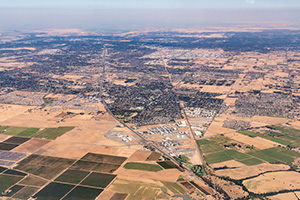 UC Davis Health has purchased 20 acres of land at the corner of Elk Grove Blvd. and Laguna Springs Drive, where officials want to solidify UC Davis Health’s regional footprint and expand its current Elk Grove clinics to offer additional primary care and comprehensive specialty care.
UC Davis Health has purchased 20 acres of land at the corner of Elk Grove Blvd. and Laguna Springs Drive, where officials want to solidify UC Davis Health’s regional footprint and expand its current Elk Grove clinics to offer additional primary care and comprehensive specialty care.
The acquisition is part of a strategic plan to develop a regional system of care that reaches more patients in more places. UC Davis Health CEO David Lubarsky, M.D., M.B.A., F.A.S.A., has positioned UC Davis Health as a resource to “complete, not compete” with other health systems to improve access and care throughout the region.
UC Davis Health is also developing a new health care hub in Folsom at Highway 50 and E. Bidwell, and purchased land in Rocklin near Highway 65 and the Whitney Ranch neighborhood. The outpatient clinic in Folsom will be the first to open in 2025; growth will continue over a long period to accommodate innovative care delivery and unique local needs.
UC Davis Health opens Sacramento’s first rehab hospital
The 52-bed UC Davis Rehabilitation Hospital opened in April as the first such freestanding facility in Sacramento County, representing a second fully licensed hospital on the UC Davis Sacramento campus.
The 58,000-square-foot facility at Broadway and 49th Street more than doubles inpatient rehabilitation capacity formerly available at UC Davis Medical Center, and is equipped with amenities and adaptive units where patients can practice daily living. It also includes a 12-bed brain injury unit and four private rooms for bariatric patients.
The hospital was developed by Lifepoint Rehabilitation, and is staffed by UC Davis Health and Lifepoint. The Department of Physical Medicine and Rehabilitation leads rehabilitation at UC Davis Medical Center. Learn more at ucdavisrehabhospital.com.
UC Davis Health celebrates community health center opening
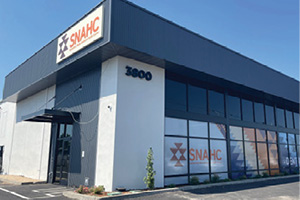 For the past six years, physicians and residents from UC Davis Health’s Department of Pediatrics have cared for children’s medical needs at the Sacramento Native American Health Center (SNAHC), a nonprofit Federally Qualified Health Center (FQHC) in the city’s midtown neighborhood. In June, SNAHC offered additional convenience to its patients by opening the doors to its newest location in South Sacramento.
For the past six years, physicians and residents from UC Davis Health’s Department of Pediatrics have cared for children’s medical needs at the Sacramento Native American Health Center (SNAHC), a nonprofit Federally Qualified Health Center (FQHC) in the city’s midtown neighborhood. In June, SNAHC offered additional convenience to its patients by opening the doors to its newest location in South Sacramento.
The 35,000-square-foot new building will serve up to 12,000 patients a year.
UC Davis Health, which has long been committed to supporting patient-centered, community-minded care, donated $250,000 toward the expansion. Additional community partners include Delta Dental Community Care Foundation, Indian Health Service, Sacramento Municipal Utility District and Sutter Health, among others.
SNAHC provides comprehensive health services to individuals with limited or no access to care, including Medi-Cal enrollees. It expanded its service to South Sacramento, recognizing that the Native American community comprises nearly 15% of the area’s population. Despite its name signifying Native American heritage, SNAHC is committed to creating an inclusive and welcoming environment that respects and embraces the cultural diversity of the community it serves. There are no tribal or ethnic requirements to receive services at the center.
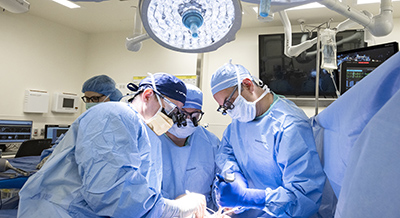
UC Davis Health launches new liver transplant program
Adult liver transplant program expands the existing services of the UC Davis Transplant Center and provides care to patients with liver disease
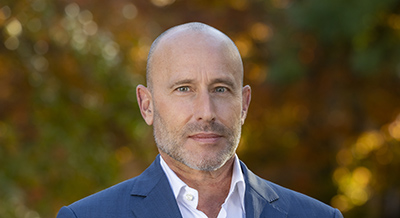
A new era in health care
David Lubarsky provides highlights about some of our most recent accomplishments, and how we’re pushing the bar higher to ultimately benefit patients and the world
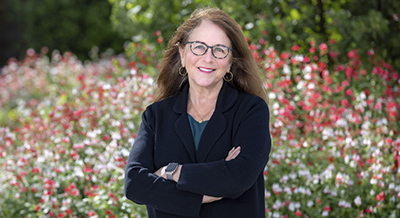
Advancing education equity without affirmative action
Read how the School of Medicine continues to be in the spotlight as schools nationwide look at our model for training diverse physicians

